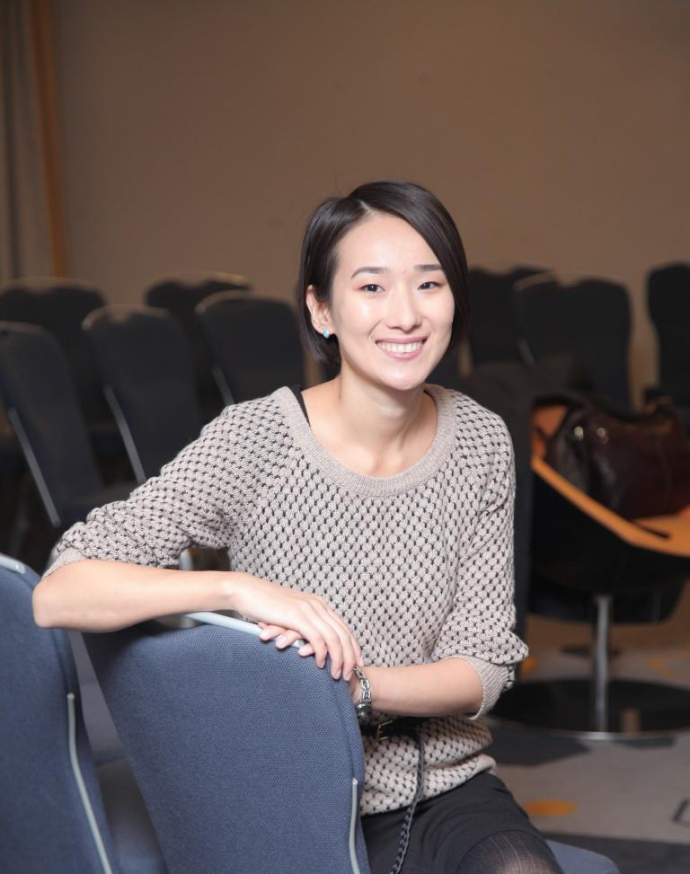Alumni Spotlight
Malika Tukmadieva: New Research Hub for Young Scholars
After graduation Malika received a European Scholarship for Central Asia for the Master of Advanced Studies in International and European Security from the Geneva Centre for Security Policy (GCSP) and the European Institute of the University of Geneva (IEUG), which is offered exclusively to Academy alumni. Malika was a part of different research projects and eventually, together with friends, she established own research lab in Astana.
Q: Dear Malika, what is PaperLab and how did it start?
Paperlab (Public Policy Research Lab) is an informal network of young researchers from Kazakhstan, Kyrgyzstan, and Uzbekistan with sociology, cultural studies, political science, and economics backgrounds. Many of us are proud alumni of the Academy. Thanks to our common background (the Academy and the Soros Foundation Kazakhstan's Public Policy Initiative Fellowship) we are longtime friends and colleagues with a shared view on social issues and research sphere in the region. PaperLab started from this friendship and joy of intellectual exchange, in early 2016. We decided to collaborate on several research projects in such areas as labour policies, education, migration, and urban development.
Q: What are the goals and activities of PaperLab?
As young professionals, we saw difficulties accessing the research sphere in general and the lack of open data, and the expertise (at least in Kazakhstan) is often kept behind the closed doors. It is often unnecessarily considered to be intelligence. Therefore, in early 2016 we started a discussion club in Astana, through which we can communicate research findings with decision-makers and get feedback/ exchange from the society.
Our vision for the club is that research should be open, available, and understandable. Every discussion is formed around a research project of a young researcher, with recognized experts/ policy-makers invited only for the supporting roles in order to bring new voices into the Kazakhstan policy discourse.
In-line with the same vision of creating an enabling environment for quality research and breaking out of the “liberal bubble", this year we began a capacity-building project called Making New Experts. The project works closely with young Kazakh experts to strengthen skills and encourage communicating research findings to the wider society through social networks and traditional media. The project consists of a series of trainings on efficient engagement with media and mentoring support from prominent communication experts.
We also host regular monthly informal meetings for the research community in Astana and Almaty, where researchers can meet colleagues from different fields and on various career stages beyond strict agendas and offices.
Q: This means that you work not only with researchers, but also with policy makers? Is it challenging to attract policy-makers?
We aim to make each of our discussions practical, with recommendations, and without the problem statement being the main focus of the discussion. The discussion club is oriented at facilitating dialogue with policy makers. We have been fairly successful, so far, in government's position being represented. In almost every discussion we have had at least one representative of a competent ministry/ agency. Often policy-makers are interested in the research results, requesting copies of the presentations and following-up events with feedback. We can say we are successful in working with lawmakers as well, some Parliament Deputies are regular participants of our discussions.
Q: What are you short-team and long-term goals and projects?
Because PaperLab is not a formal institution, but rather a community of like-minded people, it is very hard to make long-term plans. We try to have fun and enjoy our current activities, we are continuing improving the quality, playing with formats, tools and expanding the geography.
For example, we are working on breaking the discussion club out of the "liberal bubble". We hold meetings in the Russian and Kazakh languages, but also experiment with mixing Kazakh and Russian languages. Kazakhstan's urban landscape is increasingly divided by language. The two parallel value systems are forming separate discourses, public spaces, and platforms that rarely intersect. We form mixed language panels and encourage participants to speak in their native languages, which creates a relaxed atmosphere for people to speak up on such sensitive topics as gender or religion.
Q: Do you receive a feedback from researchers and ordinary interested citizens?
Even though we do not directly influence political decisions, we are shaping the environment and culture with open discussion between researchers, activists, policy-makers and citizens on important social issues. This is very important for a country in which the public expert space is rather narrow and formalized. Our projects create space, around which communities are forming, it is rewarding to see people participating on the regular basis, exchanging contacts and finding new partners during/after our events. I think we are becoming more optimistic about our society thanks to our work, as we meet a many interesting people and see how new ideas form and the change takes place.



 Русская версия
Русская версия